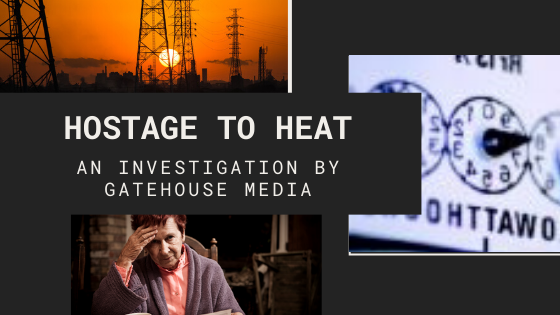The reporters uncovered cases in which Texans died from heat exposure even with utility service available, but with the air conditioning not in use.
______________________________________________________
Texas summers have become increasingly brutal, and with the rise in temperatures have come more utility disconnections. But state regulators haven’t kept tabs of heat-related deaths and state lawmakers have failed to adopt heat-related safety laws for workers.
These were among the findings in a recent investigative report by journalists Jeremy Schwartz and Andrea Ball of GateHouse Media. Published simultaneously by the Austin American-Statesman and a number of other Texas newspapers, their Hostage to Heat series marks the culmination of the reporters’ months-long deep dive into statewide medical examiner records, utility disconnection data and emergency call logs. You can read the report here.
“This began last year,’’ explained reporter Schwartz, speaking with the Austin 360 podcast about the series, which was published last month. “We knew that the last decade was the hottest on record — temperatures are rising and we are seeing heat waves like we never seen before. We wanted to know what that meant for people’s mortality.”
The reporters uncovered startling cases in which Texans were found dead inside their homes from heat exposure after having their electricity shut off. They also identified cases in which Texans died from heat exposure even with utility service still available, but with the air conditioning not in use. “They were so afraid of not being able to pay their bills and getting disconnected, that they weren’t using their electricity,” explained Schwartz.
Reporter Ball separately examined heat-related deaths of workers, including about two dozen on-the-job deaths that were never investigated by the Occupational Safety and Health administration. Ball documented more heat-related worker deaths in Texas than in any other state, including California with a much larger population. But, “there are no state laws (in Texas) that require employers to provide protections for people who are working outside in extreme heat,” she said.
Schwartz and Hall submitted nearly two dozen Texas Public Information Act requests for their investigation, analyzed hundreds of data points and interviewed dozens of residents, utility assistance workers, state and local officials, company representatives and consumer advocates, including those with our sister organization, the Texas Coalition for Affordable Power.
You can read their report here.



